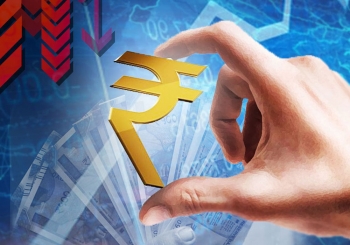
.png) Dr Suresh Mathew
Dr Suresh Mathew

It sounds good to hear the rhetoric of making the economy worth $ 5 trillion. It gives a nice feeling to read about taking the country on the road to super power status. But such pomposity does not mean much on the ground. Well thought-out policies and programmes are needed to take the country on the road to economic development. The recently released International Monetary Fund’s prediction that in 2020 the growth of India’s Gross Domestic Product (GDP) will see a contraction of over 10 per cent shows the country the mirror. Rubbing salt to the wound comes the world body’s estimation that our ‘poor neighbour’ Bangladesh is set to overtake India in per capita GDP. The IMF’s report further states that India will be the third poorest country in South Asia, with even Bhutan and Sri Lanka having higher per capita GDP. This should send alarm bells ringing for the ‘ever optimistic’ mandarins in the government.
The government cannot wriggle out of this dismal state of affairs putting the blame at the door of Covid virus. The pandemic and the subsequent lockdown might be the cause for the unprecedented contracting of the GDP in the first quarter of this fiscal year by a massive 23.9 percent, the first GDP contraction in more than 40 years. But India’s GDP had been on a free-fall continuously in the last eight quarters. Contrast this with the Bangladesh’s economy which over the last eight years expanded at the rate of 6 per cent and 7 per cent before hitting 8.2 per cent in 2019. Even this year which is undermined by pandemic, its export-oriented economy is predicted to expand 3.8 per cent. How will the Modi government answer the recurring decline in India’s GDP while the opposite is happening in the ‘poor’ neighbour.
Adding insult to injury, the Global Hunger Index (GHI) 2020, released recently, has placed India in the 94th rank among 107 countries and it is in the ‘serious’ category. This report too has come as a big setback for India as it is placed behind Bangladesh, Myanmar and Pakistan though they too are in the ‘serious’ category. Nepal and Sri Lanka are in the ‘moderate’ hunger category, thus doing better than India.
The Modi Government would do well to gauge the depth of the crisis. A few announcements and coining new slogans won’t help it tide over the grave situation, partly created by its own wrong policies and lopsided priorities. Sound economic policies drawn up and monitored by experts will boost the economy. But we see many economic experts leaving their postings with the government disillusioned. The opinions of experts manning vital positions are often ignored. The corridors of power are seemingly occupied by those willing to sing paeans to the government rather than those who have expertise in the respective fields.
It is worth remembering what David Lloyd George, the British Prime Minister during World War I, said: “You can’t cross a chasm in two small steps.” The country is faced with one of its gravest economic crises. Small steps won’t help it tide over the situation; bold steps and pro-people policies will bear fruit. Adding a few more to the billionaire-club is no solution. Putting more money into the hands of people and reviving the economy would be the key to the present-day predicament.